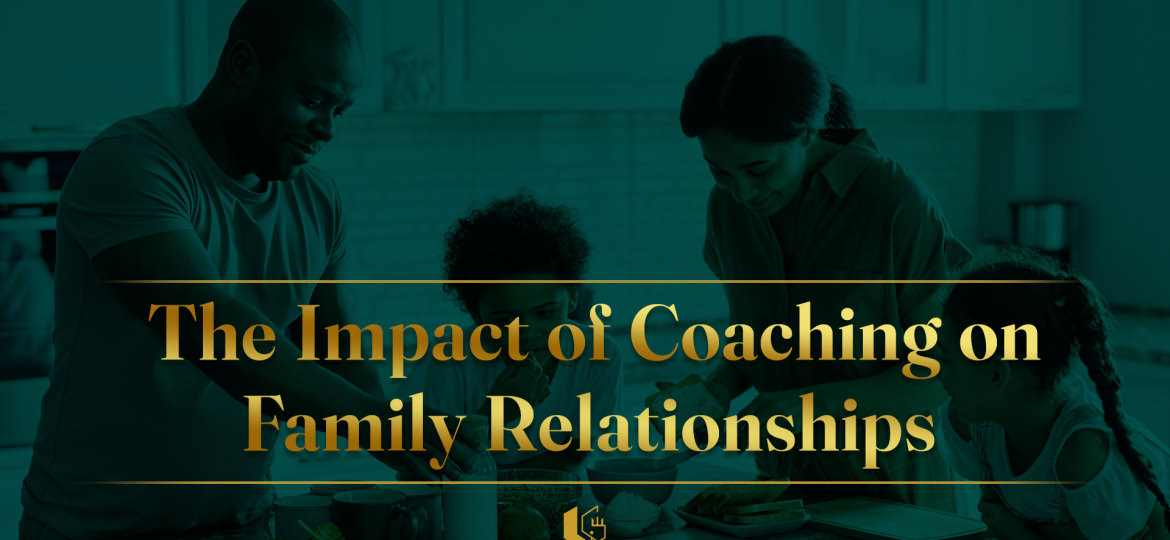
Introduction
The family is the most fundamental social institution and has a profound impact on both individual and social life. However, many families face challenges such as misunderstandings, lack of effective communication, unresolved conflicts, and diminished intimacy among members. Family coaching, as a modern and proactive approach, can help improve family relationships, increase empathy, and foster healthy interactions.
Unlike therapy, which often focuses on resolving past issues, coaching emphasizes practical, future-oriented solutions and the development of communication skills within the family. In this article, we explore the positive effects of coaching on family dynamics and how this approach can be used to create a more balanced and joyful family life.
What Is Family Coaching?
Family coaching is a developmental process that helps family members enhance their relationships, resolve communication issues, and clarify shared goals. Rather than dwelling on past problems or emotional wounds, coaching focuses on finding practical solutions, building self-awareness, and strengthening interpersonal skills.
Through powerful questioning, constructive feedback, and various coaching techniques, coaches guide families to identify challenges and create new pathways for healthier interactions.
Benefits of Coaching in Family Relationships
1. Improving Communication Skills
One of the most common causes of family tension is a lack of effective communication. Family coaching teaches members how to speak with one another without judgment, express their emotions clearly, and listen actively. Techniques such as active listening and positive feedback can reduce misunderstandings and foster healthier connections.
2. Constructively Resolving Conflicts
Conflicts are a natural part of any family, but the way they are managed can dramatically affect the quality of relationships. Coaching helps family members understand each other’s perspectives and discover new ways to resolve disagreements.
Rather than blame and escalation, coaching focuses on approaches like expressing needs, managing emotions, and seeking win-win solutions.
3. Fostering Empathy and Mutual Understanding
One of the most valuable outcomes of coaching is increased empathy among family members. Many family issues arise from the inability to understand one another’s emotions and needs.
Coaching uses techniques such as perspective-taking and self-awareness exercises to help individuals better understand each other’s experiences and feelings. This leads to deeper connection and fewer unnecessary conflicts.
4. Creating Shared Goals within the Family
Families with common values and shared goals tend to develop stronger connections. Coaching supports families in identifying what truly matters to them and setting goals that promote growth and unity.
For instance, families might focus on spending quality time together, adopting healthier lifestyles, or strengthening emotional support.
5. Increasing Accountability and Trust
Coaching emphasizes personal responsibility within the family unit. When individuals take ownership of their behavior and emotions, family relationships naturally improve.
By fostering a respectful dialogue and mutual accountability, family coaching helps members play an active role in resolving issues and builds a greater sense of trust among them.
How to Use Coaching to Improve Family Relationships
1. Participate in Family Coaching Sessions
One of the most effective ways to experience the benefits of coaching is to attend professional family coaching sessions. Certified coaches use research-based tools and modern techniques to help families improve communication and understanding.
2. Apply Coaching Skills in Daily Life
Even without formal sessions, family members can incorporate basic coaching practices in their daily interactions. Skills such as open-ended questioning, active listening, offering positive feedback, and emotional regulation can significantly enhance the quality of family relationships.
3. Schedule Regular Family Conversations
Setting aside dedicated time for open family conversations is a simple yet powerful way to strengthen relationships. These discussions create space for sharing feelings, addressing challenges, and working together on solutions.
4. Nurture a Culture of Growth and Learning
Families that embrace a culture of continuous growth and learning often enjoy healthier dynamics. Reading books on coaching, attending workshops, and engaging in discussions about personal development and communication can deepen understanding and connection.
Conclusion
Family coaching can be a powerful tool for improving communication, increasing empathy, and building healthier relationships. By developing communication skills, resolving conflicts constructively, and establishing shared goals, families can create stronger bonds and a more vibrant home environment.
Coaching doesn’t just enhance individual well-being—it fosters a positive and supportive family atmosphere where every member feels valued and connected.
If you’re looking to improve your family dynamics and strengthen communication, consider working with a professional coach and take the first step toward creating positive and lasting change.

